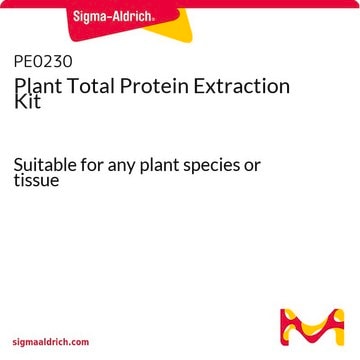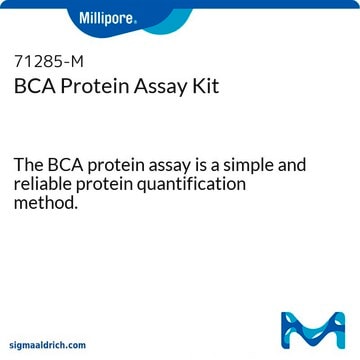R1137
Hind III from Haemophilus influenzae
Restriction Enzyme
Iniciar sesiónpara Ver la Fijación de precios por contrato y de la organización
About This Item
Número de CAS:
MDL number:
UNSPSC Code:
12352204
Productos recomendados
grade
for molecular biology
form
buffered aqueous glycerol solution
concentration
≥10000 units/mL
10,000 units/mL
shipped in
wet ice
storage temp.
−20°C
¿Está buscando productos similares? Visita Guía de comparación de productos
Specificity
Recognition sequence: 5′-A/AGCTT-3′
Cutting results: 2-10-fold Hind III overdigestion of 1 μg λ DNA substrate results in 100% cutting
Heat inactivation: 65 °C for 15 minutes
Cutting results: 2-10-fold Hind III overdigestion of 1 μg λ DNA substrate results in 100% cutting
Heat inactivation: 65 °C for 15 minutes
Application
HindIII, a restriction endonuclease, is used in molecular biology applications to cleave DNA at the recognition site 5′-A/AGCTT-3′ to generate DNA fragments with cohesive 5′-ends.
Other Notes
Supplied with 10x Restriction Enzyme Buffer SB (B8781)
Comment: Hind III under suboptimal reaction conditions will cleave secondary recognition sites (star activity).
Physical form
Solution in 10 mM Tris-HCl, pH 7.5, 0.1 mM EDTA, 1 mM dithioerythritol, 250 mM NaCl, 0.01% polydocanol (v/v), 50% glycerol (v/v) at 4 °C
Related product
Referencia del producto
Descripción
Precios
incubation buffer
Referencia del producto
Descripción
Precios
Storage Class
12 - Non Combustible Liquids
wgk_germany
WGK 1
flash_point_f
Not applicable
flash_point_c
Not applicable
Certificados de análisis (COA)
Busque Certificados de análisis (COA) introduciendo el número de lote del producto. Los números de lote se encuentran en la etiqueta del producto después de las palabras «Lot» o «Batch»
¿Ya tiene este producto?
Encuentre la documentación para los productos que ha comprado recientemente en la Biblioteca de documentos.
Stephen J King et al.
Molecular biology of the cell, 14(12), 5089-5097 (2003-10-21)
Cytoplasmic dynein and dynactin are megadalton-sized multisubunit molecules that function together as a cytoskeletal motor. In the present study, we explore the mechanism of dynein-dynactin binding in vitro and then extend our findings to an in vivo context. Solution binding
Tomás Brdicka et al.
The Journal of experimental medicine, 196(12), 1617-1626 (2002-12-18)
A key molecule necessary for activation of T lymphocytes through their antigen-specific T cell receptor (TCR) is the transmembrane adaptor protein LAT (linker for activation of T cells). Upon TCR engagement, LAT becomes rapidly tyrosine phosphorylated and then serves as
M Hsu et al.
Biochemistry, 17(1), 131-138 (1978-01-10)
In the presence of 100 mM Tris buffer (pH 7.5) and 1-10 mM Mg2+ EcoRI endonuclease cleaves DNA at a specific nucleotide sequence and in a characteristic way: -GAATTC-. But if Mg2+ is replaced by Mn2+, the specificity of the
C Kessler et al.
Gene, 92(1-2), 1-248 (1990-08-16)
The properties and sources of all known class-I, class-II and class-III restriction endonucleases (ENases) and DNA modification methyltransferases (MTases) are listed and newly subclassified according to their sequence specificity. In addition, the enzymes are distinguished in a novel manner according
Jaroslav Jelinek et al.
Epigenetics, 7(12), 1368-1378 (2012-10-19)
Genome wide analysis of DNA methylation provides important information in a variety of diseases, including cancer. Here, we describe a simple method, Digital Restriction Enzyme Analysis of Methylation (DREAM), based on next generation sequencing analysis of methylation-specific signatures created by
Nuestro equipo de científicos tiene experiencia en todas las áreas de investigación: Ciencias de la vida, Ciencia de los materiales, Síntesis química, Cromatografía, Analítica y muchas otras.
Póngase en contacto con el Servicio técnico







